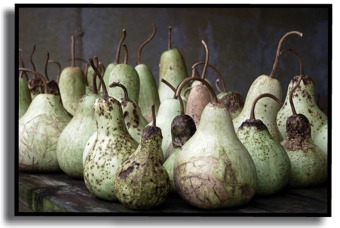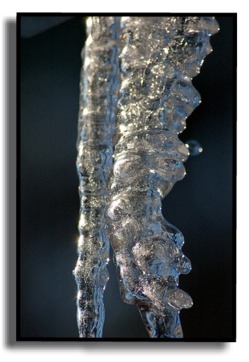Posted by Nicky Drayden on May 6, 2010 in
Reviews Author Website: tobiasbuckell.com
Published by: Clarkesworld Magazine



 Photo by MGShelton Creative Commons
Photo by MGShelton Creative Commons
The Story:
Stuck in perpetual air-debt on a space orbital, professional Friend Alex Mosette is out of options. Well, not completely out of options. There’s always the old fallback of going into hibernation in between jobs to minimize air consumption, but there’s also a new opportunity on a recently docked ship offering half a point on the package, enough for Alex to pay off all air debts and live comfortably — maybe even comfortably enough to upgrade from the cramped, coffin-like quarters Alex now calls home. The details of the contract are sketchy at best, but the risk is more palatable than spending unending days as a corpsicle aboard the orbital.
Aboard the ship, half-truths and strained allegiances are abound as the details of the contract are spelled out: Alex is to serve as a professional Friend to a Compact Drone, an entity detached from the Compact’s hive-mind sent to help determine if ant-like aliens on a newly discovered world qualify as intelligent life. As a Friend, Alex has to gain the Drone’s trust, and keep it sane during their mission. The Drone’s decision could mean the difference in walking away from this gig rich, or filthy rich, though as the truth unfolds, Alex might just be satisfied to walk away from this alive.
The Craft: World Building
SPOILERS
Oh, this is another fun one full of complex socioeconomic structures, artificial gender-bending, and alien botany. Before we talk about world building, I’d be remiss if I didn’t mention how well this worked as a story — tension and mystery in all the right spots, twists and turns, and characters that really bleed when you prick them. What I love about A Jar of Goodwill is that it’s full of delectable BIG IDEAS, and yet they fit so comfortably in this short story, which pushes more into the realms of a novelette at about 8000 words, but every single one of them is worth it, working double time as they draw you deeper and deeper into this world.
The first big idea of this world revolves around air rationing, not an entirely new concept, but the execution of it in this piece reads like mind candy. Sure there’s only so much air to go around in space, but what happens when a person uses more than their quota and can’t pay? What are the options? Bottom feeders like Alex don’t have a lot of options, but you can bet on a space orbital, there are hundreds, if not thousands of people going paycheck to paycheck, their priority not being food or shelter, but air, something that we earthbound fools take for granted every single day. So while in this story we don’t spend a lot of time on the orbital, we do get a sense of the desperation for those living in cubbies, and when Alex sees the spacious 5×7 living quarters with free air on the ship, we can instantly relate to the thrill.
Putting a price tag on first contact is also a great idea. The planet Ve is a goldmine waiting to be tapped. Someone will get rich off of it, but now it’s only a matter of who, depending on whether or not the ant aliens are intelligent. The reader knows they are, the characters know they are, but that’s not what’s important. It’s all about what they can do about it to serve their own agendas and fatten their own wallets. The Vesians are doomed either way. Let me also say that Ve is a jewel of worldbuilding, with acid spewing plants, leaves like black Glad bags, and dog-sized ants breathing green atmosphere that’ll melt your skin off. But to the Vesians, it’s a little slice of heaven, and perhaps they too think it’s worth fighting for.
Tags: Clarkesworld, must read, queer fiction, science fiction, space opera, world building
Posted by Nicky Drayden on Apr 17, 2010 in
Reviews Author Website: www.jlake.com
Published by: Clarkesworld Magazine, February 2010
 Photo by Rick Creative Commons
Photo by Rick Creative Commons
The Story:
Engineering Supervisor Domitian Spanich is always falling for the wrong type of guy — the young, pretty kind who don’t stick around once they’ve spent his pay chitty on fancy drinks. Half the guys torquing vacuum on Estacada Orbital swing his way, and yet Spanich finds himself hopelessly captivated by Austen, Spanich’s dull-witted sometimes lover, whose finer attributes include a tight body, crooked smile, and violet eyes. But then Austen shows unexpected interest in Mare Imbrium {13 pairs}, the starship Spanich had been working on for three straight shifts, and Spanich’s world changes overnight.
The Craft: World Building
SPOILERS
Torquing Vacuum has a lot going on world building wise, and yet it’s all integrated into the story in a way that doesn’t leave the reader’s head spinning. (Though I do admit, I had to print this one out so I could better digest it.) Immediately the world feels foreign, right from the mention of Spanich’s name (pronounced Span-ick, or Spinach if you really want to piss him off.) We quickly learn that Spanich is a drive tech on Estacada Orbital. He’s working on a ship, the Mare Imbrium {13 pairs}, which has a shipmind — a bit of world building that really stands out in this piece. Here, the shipminds aren’t subservient as they are in so many science fiction stories, but revered and their ship’s names demand respect, like the credentials of a honored official.
The ambiance of Estacada Orbital is set with a mix of tech and culture, introduced with conflicts related to the story. We learn of the monetary system through Austen’s frivolous spending of Spanich’s pay chitty, local thalers, and Imperial schillings, the latter of which also hints at the greater political structure of this universe. The cybernetic waiter at the bar seems like it’s just as likely to kill Spanich as it is to serve him a drink, which suggests that Estacada Orbital is the kind of place where you watch your back. The colloquialisms also add a touch of charm, like: “Thank the pressure demons this place was so dark.” and I particularly enjoyed the line about how “Austen could scent ‘broke’ the way a sniffer could find a carbon dioxide breach in a scrubber tank.”
We’re also given a broader view of the universe with mentions of the Mistake, an event that is never explained, but its effects weigh heavily on the story in the form of genetically altered humans. The glimpse of the Imperial family is a small one, but is also very telling. Watching Spanich’s reaction as he realizes who Austen really is gives us insight into the hierarchy and ruling class, though their interaction is of a personal nature rather than political. Overall, this story gives the reader a lot to chew on, but it’s presented in manageable chunks. The details of the world are specific and fun and are worked into the story in a natural, tidy, entertaining way.
Tags: Clarkesworld, queer fiction, science fiction, space opera, world building
Posted by Nicky Drayden on Apr 2, 2010 in
Reviews Published by: Asimov’s Science Fiction, 2009
 Photo by Kodismom Creative Commons
Photo by Kodismom Creative Commons
The Story:
Mira died in a car accident, but that’s not the worst of her problems. She’s now a bridesicle — half icicle, half mail order bride — waiting for her prince charming to revive her cryogenically frozen body. Only it’s not exactly the princes that go to the dating centers of the dead. It’s the weirdos, the perverts, and the old men looking for the affection of pretty young things. And apparently not even those types are interested in Mira. She slips in and out of death, for decades on end, trying to convince her would be suitors to give her a second chance at life in exchange for her hand in marriage. Her future depends on the sweet nothings she can mutter form her cold, blue lips, wooing men with her flaccid face and dead eyes…
The Craft: Character Arcs
SPOILERS
Mira wakes up eighty years after her death, unable to move anything thing besides her face. She quickly learns that she’d been frozen after her accident, and is now at the mercy of the men visiting her icy crypt to pay for her revival. The world Mira had known is gone, including her mother, whose consciousness had been implanted in Mira’s brain. Mira has considerable guilt about losing her mother, despite that her mother hadn’t done much to deserve such sentiment. Having her mother constantly in hitching along on her thoughts, judging her every move, and second guessing her decisions had made Mira’s life a living hell, and she’s relieved to finally be rid of her.
But trapped in a half-death, Mira now has bigger problems, namely getting the nerve to convince some desperate schmuck that she’ll love him only if he’ll free her. She’s got guilt about this too. She’s never had to deceive, and she lies to Lycan, a shy, overweight man who visits her on occasion. It pains her not be herself, to bend to fit his fantasy of a woman and to tell him the sweet things he so desperately wants to hear. Mira finds the strength within her to pretend she’s interested in him, even though in life, she hadn’t been interested in men at all. As it turns out though, Lycan had secrets of his own. He doesn’t have the money to revive Mira.
The good news is that Mira learns that her girlfriend Jeanette had been frozen, too, and Lycan passes a message to her, just a few crypts away. Mira’s outlook changes instantly, and now she truly has something to live for. Another century or so passes before she gets her next chance at freedom, from an orange-tinted attorney looking for a surrogate to birth a child for him and his late wife, who’s hitching in his head. And apparently it’s pretty crowded in the orange man’s brain, who’s Lycan’s grandson as it turns out. Lycan’s hitching too, trying to convince the orange man and his wife to choose Mira as the surrogate. Mira makes a case for herself, tries to say all the right things, but it’s just not enough. Finally, she tells the truth, that she’s gay, hoping it’ll ease the wife’s jealousy.
Mira never liked having her mother as a hitcher, but she admires how the orange man and his family coexist in a sort of marital bliss. After she’s free and raising her child, she decides she wants to experience a that bliss for herself. She doesn’t have the money to revive Jeannette, but she’s got enough to get her consciousness implanted. They’ll be together through this life at least, and maybe more. In this delightfully odd Nebula Award contender, Mira is stuck in a state where she must constantly reevaluate her morals and motives in her search for freedom. She betrays herself, but at the same time, grows into a stronger woman, realizing that she doesn’t need to be anchored down by the guilt and hurt from past lives. She also realizes that she’d given up too soon on love, the one thing that’s able to transcend death, even without fancy technology.
Tags: Asimov's, brides, character arcs, Nebula, queer fiction, science fiction



 Photo by MGShelton Creative Commons
Photo by MGShelton Creative Commons


